
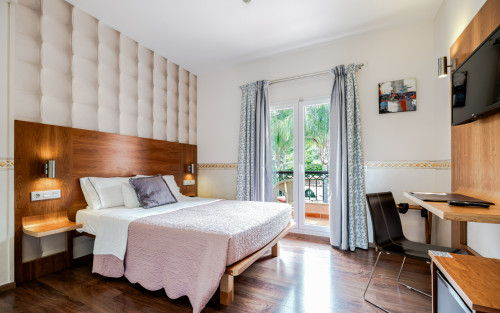
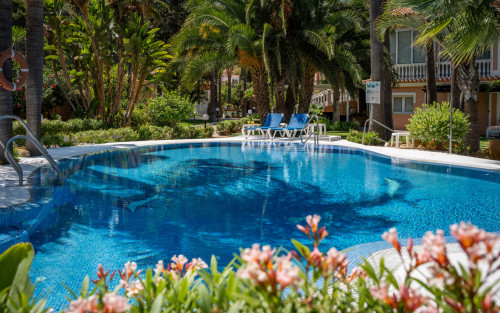



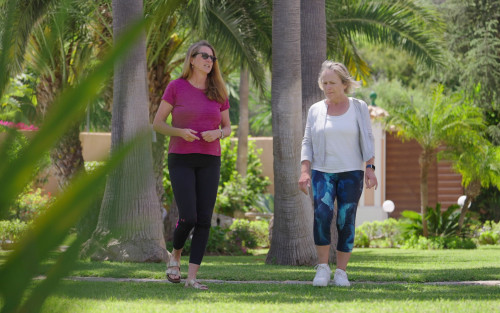
Satori Recovery
Verified Center
This provider's information has been quality-checked by Recovery.com's Research Team for accuracy and completeness, including center verification through appropriate third-party organizations.
Treatment Focus
This center treats substance use disorders and co-occurring mental health conditions. Your treatment plan addresses each condition at once with personalized, compassionate care for comprehensive healing.
Primary Level of Care
Offering intensive care with 24/7 monitoring, residential treatment is typically 30 days and can cover multiple levels of care. Length can range from 14 to 90 days typically.
Treatment Focus
This center treats substance use disorders and co-occurring mental health conditions. Your treatment plan addresses each condition at once with personalized, compassionate care for comprehensive healing.
Primary Level of Care
Offering intensive care with 24/7 monitoring, residential treatment is typically 30 days and can cover multiple levels of care. Length can range from 14 to 90 days typically.
Private Pay
You pay directly for treatment out of pocket. This approach can offer enhanced privacy and flexibility, without involving insurance. Exact costs vary based on program and length of stay. Contact the center for specific details.
Satori Recovery
Satori Recovery
About Satori Recovery
Nestled in a secluded location overlooking the picturesque seaside of sunny Southern Spain, Satori Recovery is a luxurious residential rehab that creates addiction recovery programmes tailor-made for each client. It is conveniently situated close to Marbella, offering both tranquility and accessibility. Satori Recovery believes in treating the whole person—not simply the addiction—employing a comprehensive holistic programme that uses evidence-based detox and a wide range of traditional and alternative therapies to treat addiction and underlying mental health concerns. Their ethos is to offer a non-judgmental, strengths-based, client-centered support system. During admission, they thoroughly assess individual needs to create bespoke treatment programmes to accommodate each person's specific requirements.
Strengths-Based Treatment for Lasting Sobriety
Satori’s dedicated team of doctors, psychiatrists, psychologists, nurses, and recovery coaches provides compassionate care, support, and guidance at every step of their client's journey. Upon entering detox, clients are monitored 24/7 and offered medication-assisted treatment as required. Through regular 1-to-1 therapy and daily group sessions, Satori Recovery helps clients navigate the complexities of early recovery, identify triggers, and develop coping strategies to maintain abstinence. They employ a strengths-based approach to identify and build the client’s strengths and resilience. Treatment emphasises a client-centred, collaborative strategy to guide clients through every step of their stay and teach them tools to assist them after leaving the centre. An important facet of treatment is family therapy with a family recovery specialist, to help improve relationships and communication, which is beneficial for maintaining lasting sobriety.
Impactful Holistic Healing
Satori Recovery offers a holistic recovery experience designed to heal the mind, body, and spirit. Their range of holistic therapies includes hypnotherapy, gong therapy, vibration therapy, energy healing techniques, Reiki, and sound bowl therapy, along with floatation therapy for ultimate relaxation and stress relief. Clients can also rejuvenate in our sauna and ice bath or experience deep meditation in the Satori Chair, which simulates zero gravity sensations. With float therapy, clients can disconnect from external stressors, reconnect with their inner self, and focus on achieving lasting recovery and freedom from addiction.
Boutique Recovery Near Màlaga
Located on Spain's Costa del Sol, Satori Recovery is an 18-bedroom home with luxurious accommodations and amenities. Satori provides airport transfers to support clients from the moment they land, and guides to the centre about an hour’s drive from the Màlaga airport, and a short drive from Marbella. Set in beautiful gardens with fruit trees and a natural salt swimming pool open year-round, the center also has a gym for working out. The former boutique hotel provides lounge areas for relaxation and offers a beautiful, serene space for individuals to slow down and heal. Satori provides recovery-themed movie nights twice a week, and clients have access to a large collection of books and educational resources. They offer weekly excursions to surrounding activities, including catamaran sailing, visiting historical sites, beach and forest walks and hikes, chocolate making, and golf, and they create comprehensive aftercare plans, to continue to assist their clients after leaving.

Highlights from the Center
Highlights
These highlights are provided by and paid for by the center.
Customized Treatment Plans
On-site Spa
Pet Friendly
On-site Medical Detox
Center Overview
Treatment Focus
This center treats substance use disorders and co-occurring mental health conditions. Your treatment plan addresses each condition at once with personalized, compassionate care for comprehensive healing.
Pricing and Program Length
Estimated Center Costs
The cost listed here (€18,000 per 28 days), is an estimate of program cost. Center price can vary based on program and length of stay. Contact the center for more information. Recovery.com strives for price transparency so you can make an informed decision.
Luxury rehab centers offer a unique blend of luxurious amenities and high-quality treatment. From private suites to gourmet dining, personal trainers to spa treatments, these facilities provide a high level of comfort and discretion.

Meet Your Care Team

Graham Hellier
Founder and Investor
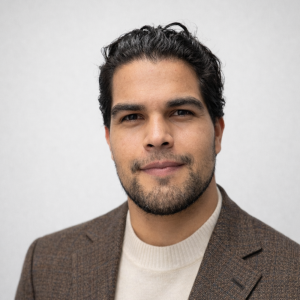
Dr Elmer Roberto Bustillo
Medical Director & Physician

Doctor Rodrigo Oliva
Detox Doctor

Laura Buckley
Counseling Psychotherapist, Coaching Psychologist

Louise Stephenson
Drug and Alcohol Addiction Counsellor
FDAP, ICADC
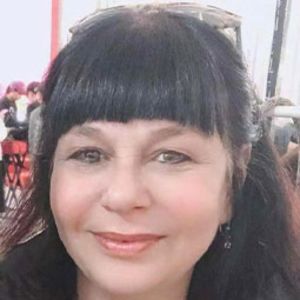
Ana Grin-Atias
Multilingual Therapist
Certified in Psychology & Addiction Therapy, CBT
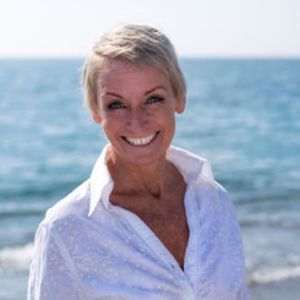
Sharon George
Hypnotist, Yoga & Reiki Teacher

Judy Loe
Life Transformation & Health Coach

Hollie Houston
Sound Therapist

Anna Scullard
Osteopath
Masters in Paediatric Osteopathy

Julia Zuñiga
Nurse, Specializing in Mental Health
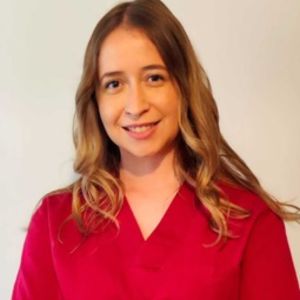
Fatima Martin
Nurse

Vicki Raddish
Voluntary Recovery Specialist
Emotional Literacy Practitioner

Luke Hand
Admissions Manager
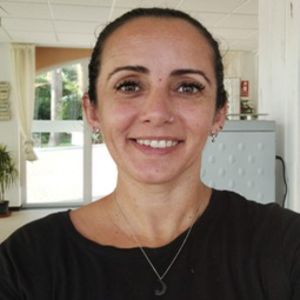
Ana Chacón Díaz
Chef

Carly Grossmith
Voluntary Recovery Specialist

Danae Zazeraj
Nutritional Therapist
Dip CNM London, mANP, mGNC

Helena Akesson
CBT therapist & 12 Step Practitioner
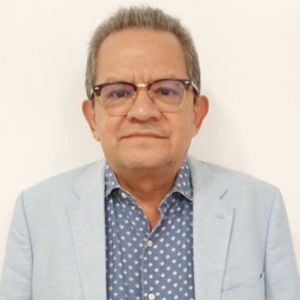
Dr Jaime Bendeck
Detox Doctor

Laura Canalejo Alonso
Nurse

Louis Fitzmaurice
Clinical Director
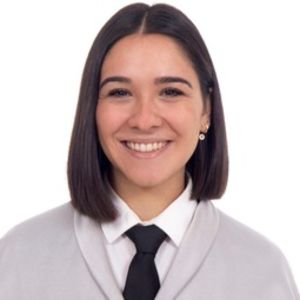
Lucia Monroy Escribano
Nurse

Lucrezia Moncado
Support Worker

Lucy Snow
Support Worker

Mark Carlin
Recovery Coach
Professional RCP

Paul Gordon
Sober Travel Companion

Sandra Wieraszko
Digital Marketing & Social Media Manager

Yenny Alexandra Castro
Chef

Paula Moreno
Psychiatrist




Levels of Care










Your Care Options
Specializations
Alcohol
Using alcohol as a coping mechanism, or drinking excessively throughout the week, signals an alcohol use disorder.
Detox
Detox fully and safely removes toxic substances from the body, allowing the next steps in treatment to begin with a clean slate.
Co-Occurring Disorders
A person with multiple mental health diagnoses, such as addiction and depression, has co-occurring disorders also called dual diagnosis.
Cocaine
Cocaine is a stimulant with euphoric effects. Agitation, muscle ticks, psychosis, and heart issues are common symptoms of cocaine abuse.
Drug Addiction
Drug addiction is the excessive and repetitive use of substances, despite harmful consequences to a person's life, health, and relationships.
Holistic
A non-medicinal, wellness-focused approach that aims to align the mind, body, and spirit for deep and lasting healing.
Trauma
Some traumatic events are so disturbing that they cause long-term mental health problems. Those ongoing issues can also be referred to as "trauma."
Who We Treat
Older Adults
Addiction and mental health treatment caters to adults 55+ and the age-specific challenges that can come with recovery, wellness, and overall happiness.
Executives
Executive treatment programs typically directly support the needs of people who manage businesses and may provide flexible schedules and office space to allow work during treatment.
Young Adults
Emerging adults ages 18-25 receive treatment catered to the unique challenges of early adulthood, like college, risky behaviors, and vocational struggles.
LGBTQ+
Addiction and mental illnesses in the LGBTQ+ community must be treated with an affirming, safe, and relevant approach, which many centers provide.
Men and Women
Men and women attend treatment for addiction in a co-ed setting, going to therapy groups together to share experiences, struggles, and successes.
Midlife Adults
For adults ages 40+, treatment shifts to focus on the unique challenges, blocks, and risk factors of their age group, and unites peers in a similar community.
Approaches
Evidence-Based
A combination of scientifically rooted therapies and treatments make up evidence-based care, defined by their measured and proven results.
Holistic
A non-medicinal, wellness-focused approach that aims to align the mind, body, and spirit for deep and lasting healing.
Personalized Treatment
The specific needs, histories, and conditions of individual patients receive personalized, highly relevant care throughout their recovery journey.
Twelve Step
Incorporating spirituality, community, and responsibility, 12-Step philosophies prioritize the guidance of a Higher Power and a continuation of 12-Step practices.
Therapies
1-on-1 Counseling
Patient and therapist meet 1-on-1 to work through difficult emotions and behavioral challenges in a personal, private setting.
Meditation & Mindfulness
A practiced state of mind that brings patients to the present. It allows them to become fully aware of themselves, their feelings, and the present moment.
Play Therapy
This approach is commonly used with children. It incorporates elements of play and self-expression, like boardgames, finger painting, dolls, and blocks.
Trauma-Specific Therapy
This form of talk therapy addresses any childhood trauma at the root of a patient's current diagnosis.
Mindfulness Therapy
This ancient practice can be mental, emotional, and even spiritual. In meditation, you focus your attention on the present moment without judgement.
Aromatherapy
Inhaling or topically applying essential oils can help relieve stress, soothe pains, and relieve emotional distress.
Art Therapy
Visual art invites patients to examine the emotions within their work, focusing on the process of creativity and its gentle therapeutic power.
Biochemical Restoration
This treatment restores any brain and body deficiencies caused by substance abuse through a full detox, followed by supplement replenishment.
Conditions We Treat
Pornography Addiction
A person with a porn addiction is emotionally dependent on pornography to the point that it interferes with their daily life and relationships.
Grief and Loss
Grief is a natural reaction to loss, but severe grief can interfere with your ability to function. You can get treatment for this condition.
Personality Disorders
Personality disorders destabilize the way a person thinks, feels, and behaves. If untreated, they can undermine relationships and lead to severe distress.
ADHD, ADD
ADHD is a common mental health condition caused by dopamine imbalance. Common symptoms include inattention, hyperactivitiy, and impulsivity.
Anger
Although anger itself isn't a disorder, it can get out of hand. If this feeling interferes with your relationships and daily functioning, treatment can help.
Anxiety
Anxiety is a common mental health condition that can include excessive worry, panic attacks, physical tension, and increased blood pressure.
Bipolar
This mental health condition is characterized by extreme mood swings between depression, mania, and remission.
Burnout
Burnout entails mental and physical exhaustion, and leads to a severe lack of fulfillment. This condition is often caused by overwork.
Substances We Treat
Alcohol
Using alcohol as a coping mechanism, or drinking excessively throughout the week, signals an alcohol use disorder.
Benzodiazepines
Benzodiazepines are prescribed to treat anxiety and sleep issues. They are highly habit forming, and their abuse can cause mood changes and poor judgement.
Chronic Relapse
Consistent relapse occurs repeatedly, after partial recovery from addiction. This condition requires long-term treatment.
Co-Occurring Disorders
A person with multiple mental health diagnoses, such as addiction and depression, has co-occurring disorders also called dual diagnosis.
Cocaine
Cocaine is a stimulant with euphoric effects. Agitation, muscle ticks, psychosis, and heart issues are common symptoms of cocaine abuse.
Drug Addiction
Drug addiction is the excessive and repetitive use of substances, despite harmful consequences to a person's life, health, and relationships.
Ecstasy
Ecstasy is a stimulant that causes intense euphoria and heightened awareness. Abuse of this drug can trigger depression, insomnia, and memory problems.
Heroin
Heroin is a highly addictive and illegal opioid. It can cause insomnia, collapsed veins, heart issues, and additional mental health issues.
Psychedelics
Hallucinogenic drugs—like LSD—cause euphoria and increased sensory experiences. When abused, they can lead to depression and psychosis.
Languages
Aftercare
Care Designed for Your Needs
Personal Amenities
Amenities
Special Considerations
Clients can bring their own pet(s)
For greater comfort and healing, pet-friendly treatment centers welcome dogs and animal companions to stay with their owners while they attend treatment.
Couples program
Using gentle clinical care, therapists guide patients and their partner through guided sessions to address issues and work towards lasting solutions.
Pet Friendly
For greater comfort and healing, pet-friendly treatment centers welcome dogs and animal companions to stay with their owners while they attend treatment.
Gender-specific groups
Patients in gender-specific groups gain the opportunity to discuss challenges unique to their gender in a comfortable, safe setting conducive to healing.
Activities
Yoga
Yoga is both a physical and spiritual practice. It includes a flow of movement, breathing techniques, and meditation.
Off-Site Activities
Off-Site Amenities
What people are saying
Treatment
5.0
Accommodations
4.7
Food & Nutrition
4.8
Value
4.8
Pros
- Beautiful Location (2)
Sue
Treatment in 2026 • (30 days) • Reviewed 02/12/26
Former Client
•Spain
Anna
Treatment in 2025 • (30 days) • Reviewed 02/23/26
Former Client
•Switzerland
James P
Treatment in 2025 • (30 days) • Reviewed 10/04/25
Loved One of a Former Client
•UK
Angela
Treatment in 2025 • (90 days) • Reviewed 02/16/26
Former Client
Roger
Treatment in 2025 • (180+ days) • Reviewed 02/03/26
Former Client






